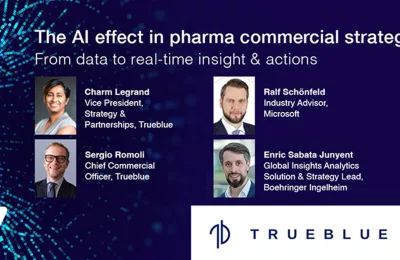Behind Data. Inside Data. 100% Human.
Facebook, 2008. We did not know how, but we sensed that it was the beginning of a revolution.
Facebook account, date of registration: September 2008. I vividly remember, like many others, expressing concrete enthusiasm that day for formalizing the transition to a new way of communicating, interacting, sharing. We did not know how, but we sensed that it was a revolution.
Fourteen years later, the news about Meta shifts between an aspect of constant, and I would say due, innovation, involving the Metaverse but also, news of a few days ago, the streamlining of services and related technologies to support users, with the new release of the chatbot BlenderBot 3, where Artificial Intelligence is always the star.
To train BlenderBot 3, more than 20,000 conversations were used on differentiated topics ranging from a selection of healthy recipes to where to find child-friendly services in the city'. Specifically, the example of chatbot conversations in 'health' is representative of how an extremely personal and sensitive topic can be dealt with today and within a digital sphere that involves the use of multiple channels.
However, one must not fall into the error of thinking that creating such conversations, both with patients and with physicians themselves, is easy. On the contrary, it is necessary to have not only a good dose of creativity and skills to implement effective marketing and communication strategies, but also a high level of analytical and digital skills.
The path taken by Meta aims to reduce the typical problems associated, in a nutshell, with two factors: first, an unclear objective of why a chatbot could be used to support the user. While the second, a potential and consequent carelessness in the logic of Machine Learning and the supervised learning models behind a chatbot.
Because teaching a machine to interact with a human being is complex and to expect it to do so in a short time and with results that are not disappointing is untrue, since it is always information, i.e., data, that feeds knowledge.
It's just... a chatbot!
Information data, has immense and well-known value, however, both socially and culturally as well as economically. And they have it for everyone, no one excluded. But precisely because of this immense value of theirs, they rightly come into play in dynamics such as the one that led Facebook to the first drop in revenues in its history and a 36% loss in profits.
You will say: it is certainly not just 'because of' data or a chatbot that annoys because it does not give the answers we seek. Are we sure about that?
The answer is no, because what Facebook has been going through since the beginning of the year is a difficult moment that cannot be ignored. In fact, such a high ownership in terms of knowledge of users' habits, if a few years ago, as I said at the beginning, it was hardly perceptible to the average user, now it becomes nagging and echoes so loudly that it affects the strategic choices of visionary companies that have changed our lives, such as Apple.
The synthesis is in the commercial of iPhone 13. The expert marketers hidden behind every human being (yes, in the world they are all expert marketers), will have motivated it with a few accents of obvious know-it-all without, in my opinion, realizing that it is so powerful and true what it says, that it becomes difficult to believe it. But it is the markets, the economic laws that govern them, but also the needs and wants of each of us.
In fact, since last year, iPhone users can (finally) choose whether to allow apps to track data.
The denial has been estimated by Meta at around $10 billion in lost advertising revenue.
My Data, my Choice!
What is the point? Well, there are two.
On the one hand, the fact that when it comes to innovation and customer behaviour, i.e. the data to be collected and analysed in order to ensure the best possible user experience, one has to be truly aware of what one is looking for and doing, not only because of the potential risks that an incorrect or ill-communicated handling of the same data implies from a legal point of view, but also because of what this apparently 'simple' action implies from an ethical point of view.
On the other hand, leveraging data through Artificial Intelligence should always start with a general definition: 'Artificial Intelligence is concerned with the development of hardware and software systems endowed with human-like capabilities, capable of autonomously pursuing a given goal and making decisions that, until then, were usually assigned to humans'. Where the 'until that moment' is the key, since being a moment usually assigned to humans, it gives human intelligence the responsibility of understanding when it is really time to talk about Artifice.
AI for Pharma - Duties, Responsibilities & Opportunities
In a context such as the markets Trueblue is targeting Pharma & Life Science, the value of this responsibility becomes even higher. This is because before starting an AI-Driven project, it is necessary to understand where you are in the transformation process (here a short survey we carried out to help you).
You need to understand those communication needs that Facebook, farsightedly, understood several years ago, but you also need to be able to do the math and calibrate the business desiderata associated with an AI-Driven system.
In our case, it is a desire for simplification and concrete optimisation of the business processes related to Customer Engagement on the part of the Field Force towards the Medical Community. But, again in our case, it is primarily a matter of wanting to harmonise the interaction channels, all of them, always and in any case placing at the center a human component that is and will always remain fundamental.



